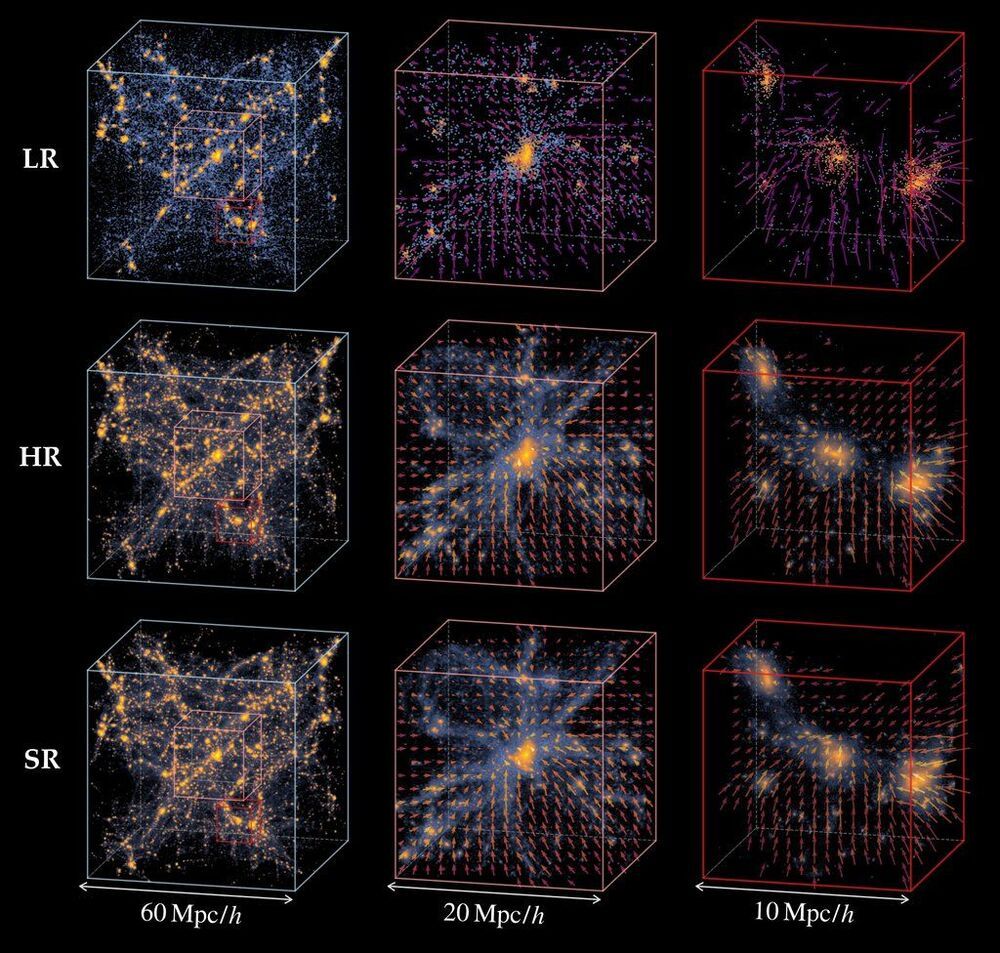Cosmologists love universe simulations. Even models covering hundreds of millions of light years can be useful for understanding fundamental aspects of cosmology and the early universe. There’s just one problem – they’re extremely computationally intensive. A 500 million light year swath of the universe could take more than 3 weeks to simulate… Now, scientists led by Yin Li at the Flatiron Institute have developed a way to run these cosmically huge models 1000 times faster. That 500 million year light year swath could then be simulated in 36 minutes.
Older algorithms took such a long time in part because of a tradeoff. Existing models could either simulate a very detailed, very small slice of the cosmos or a vaguely detailed larger slice of it. They could provide either high resolution or a large area to study, not both.
To overcome this dichotomy, Dr. Li turned to an AI technique called a generative adversarial network (GAN). This algorithm pits two competing algorithms again each other, and then iterates on those algorithms with slight changes to them and judges whether those incremental changes improved the algorithm or not. Eventually, with enough iterations, both algorithms become much more accurate naturally on their own.
